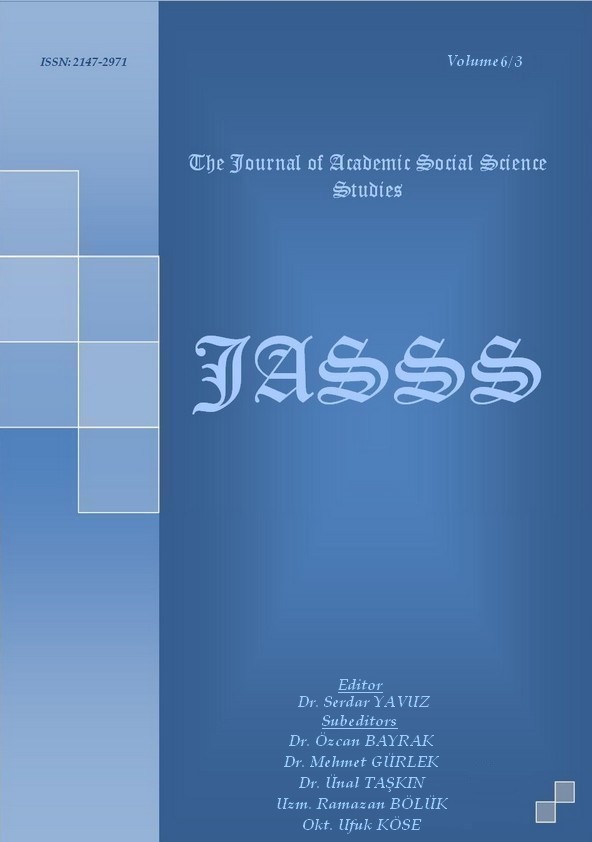Author :
Abstract
Birinci Dünya Savaşı’nın mağlupları arasında yer alan Osmanlı Devleti ağır hükümler içeren Mondros Ateşkes Antlaşması’nı imzalar imzalamaz, İtilaf Devletleri stratejik açıdan önemli gördükleri yerleri işgal etmeye başlamışlardır. Kısa süre içinde başkent kontrol altına alınmış, ordular terhis edilmiş, komutanlar başkente çağrılmışlardır. İzmir gibi güzide Anadolu kentlerinin işgaline seyirci kalınmış, tüm bu gelişmeler halkın derin üzüntüsü ve ümitsizliğini daha da arttırmıştır. Fakat Mustafa Kemal Paşa, K?zım Karabekir Paşa, Rauf (Orbay) Bey, Ali Fuat (Cebesoy) Paşa gibi komutanlar en başından itibaren kurtuluş ümidi aramaktan vazgeçmemişler, bunun için ellerinden gelen her şeyi yapmayı görev addetmişlerdir. İstanbul’daki çarelerin çok sınırlı olduğu anlaşılınca kurtuluş hareketine Anadolu’dan başlamayı uygun görmüşlerdir. İşgaller karşısında karamsar düşüncelerle olup bitenleri kabul etmekten başka çıkar yol kalmadığını düşünenlerin yanında bir an önce harekete geçerek ülkenin menfaatleri doğrultusunda mücadele etmekten yana olanlar da vardı. Fakat ilk başlarda mücadeleden yana olanların farklı düşüncelerde olduğu görülür. Örneğin Mustafa Kemal Paşa başkentte kalarak siyasi yollarla mücadele etmek fikrini savunurken Kâzım Karabekir Paşa en baştan itibaren Anadolu’ya geçip mücadeleye Doğudan başlamak ve Batıya doğru yönelmek taraftarıydı. Mustafa Kemal Paşa, İstanbul’daki bütün girişimlerin sonuçsuz kalması üzerine o da Anadolu’ya geçme kararı alacaktır. Aynı zamanda Kurtuluş Savaşı’nın lideri haline gelecektir. Bütün bu gelişmeleri devrin mücadelesi içerisinde yer alan komutanların yazdıklarından izlemek Milli Mücadeleyi anlayabilmek için son derece önemli veriler sunmaktadır.
Keywords
Abstract
As soon as the Ottoman Empire which was among the defeated countries of the World War I signed the Treaty of Mondros with heavy provisions, the entente states began to invade strategically important places. Within a short time the capital city was taken under control; the armies were disbanded; the commanders were called to the capital. The state remained silent to the invasion of the distinguished Anatolian cities like that of İzmir, and all these increased deep sadness and desperation of the public. However, the Commanders like Mustafa Kemal Pasha, K?zım Karabekir Pasha did not give up hoping for liberation from the very beginning, and took doing their best for it as their duty. Upon understanding that ways for liberation in Istanbul were very limited, they chose to launch the Independence Movement in Anatolia. Many soldiers of almost every rank went to Anatolia with similar aims, and took part in the defense of the country with the public. As well as the ones thinking with pessimistic ideas that against the invasions, there did not remain any other way than to accept all the happenings, there were also the ones desiring to fight against the enemies in accordance with the interests of the country by making a move as soon as possible. However, it is seen that the ones favoring to fight against the enemies had initially different opinions. For example, while Mustafa Kemal Pasha was in the opinion of fighting against the enemies through political ways by staying in the capital, Kâzım Karabekir Pasha was in favor of going to the Anatolia and trigger the fight in the East, and there to the West from the very beginning. Upon the fact that all the attempts in Istanbul remained inconclusive, Mustafa Kemal Pasha took the decision to go to the Anatolia. In the same time, he became the leader of the Turkish Independence War. Following all these developments in the writings of the commanders who fought in the independence war, provides highly important data in order to be able to understand the Independence War.





